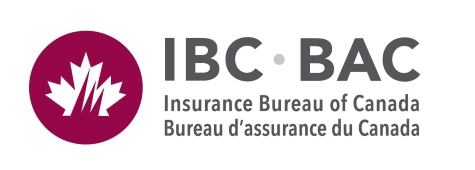HALIFAX, May 12, 2014 /CNW/ - For many Atlantic Canadians, the upcoming Victoria Day weekend often marks the 'unofficial start' of the summer season. Traffic will be heavy as thousands of people take to the roads for a getaway with the family or head to the cottage to get ready for the season.
But all too often during holiday weekends, we hear news reports of serious collisions and fatalities on the roads that could have been prevented.
With the higher volumes of traffic and increased risk on the roads, Insurance Bureau of Canada (IBC) urges motorists to drive with caution and consider some road safety tips before they set out. "It's important to put safety first and to drive defensively, not only this weekend, but all year round," says Amanda Dean, Vice President, Atlantic Canada, IBC. "While you might be in a hurry to get away, it only takes a few minutes to review some useful road safety tips that can help save you from a collision."
IBC suggests the following tips to help you stay safe, focused and in control on the roads:
- Never drink and drive. If you have had a drink, make sure you always have a designated driver. Not only is impaired driving a serious danger to public safety, it is against the law. Alcohol and drugs reduce a driver's reaction time and attention to the road.
- Avoid driver distractions such as talking on a hand-held cell phone and texting. According to recent study, 75 to 80% of all motor vehicle collisions are a result of driver distractions across North America*.
- Follow the regulations in your province and ensure proper use of seat belts, child car seats and booster seats at all times.
- Obey the rules of the road, respect posted speed limits, the rights of other drivers and drive according to road conditions.
- If you're experiencing driver fatigue pull off the road to a safe spot and have a nap as driving while drowsy can be just as fatal as impaired driving.
- Share the road. Be cautious of cyclists, motorcyclists and pedestrians. Always be on the lookout for and yield to vulnerable road users, even if they don't have the right-of-way.
- Night driving doesn't have to be intimidating. If you drive carefully and use your headlights properly, reaching your destination shouldn't be a problem.
- Have your vehicle checked to make sure everything is working properly. Repair or replace worn parts, check fluid levels and tire pressure. Make sure all lights work, including signal lights.
- Before you tow a trailer or haul a load, make sure your vehicle is properly equipped for the job. Check your owner's manual or if in doubt contact your vehicle dealer. Check that your rear view mirrors give a clear view of the road behind
- Upon seeing a wild animal on or near the road, brake firmly, but don't swerve. Sound your horn in a series of short bursts to frighten the animal away.
(Sources: Insurance Bureau of Canada and Virginia Tech*)
About Insurance Bureau of Canada
Insurance Bureau of Canada (IBC) is pleased to celebrate 50 years as a valuable resource for insurance information. Since 1964, IBC has been working with governments across Canada to make our communities safer, championing issues that directly affect Canadians and the property and casualty (P&C) insurance industry. IBC is the national industry association representing Canada's private home, car and business insurers. Its member companies represent 90% of the P&C insurance market in Canada. The P&C insurance industry employs over 118,600 Canadians, pays more than $7 billion in taxes and levies to the federal, provincial and municipal governments, and has a total premium base of $46 billion.
To view media releases and information, visit the media section of IBC's website at www.ibc.ca.
SOURCE: Insurance Bureau of Canada

Steve Kee, Director, Media & Digital Communications, Insurance Bureau of Canada, 416-362-2031 X-4387, [email protected]; Ellen Woodger, Communications Consultant, Insurance Bureau of Canada, 416-483-2358, [email protected]

Share this article